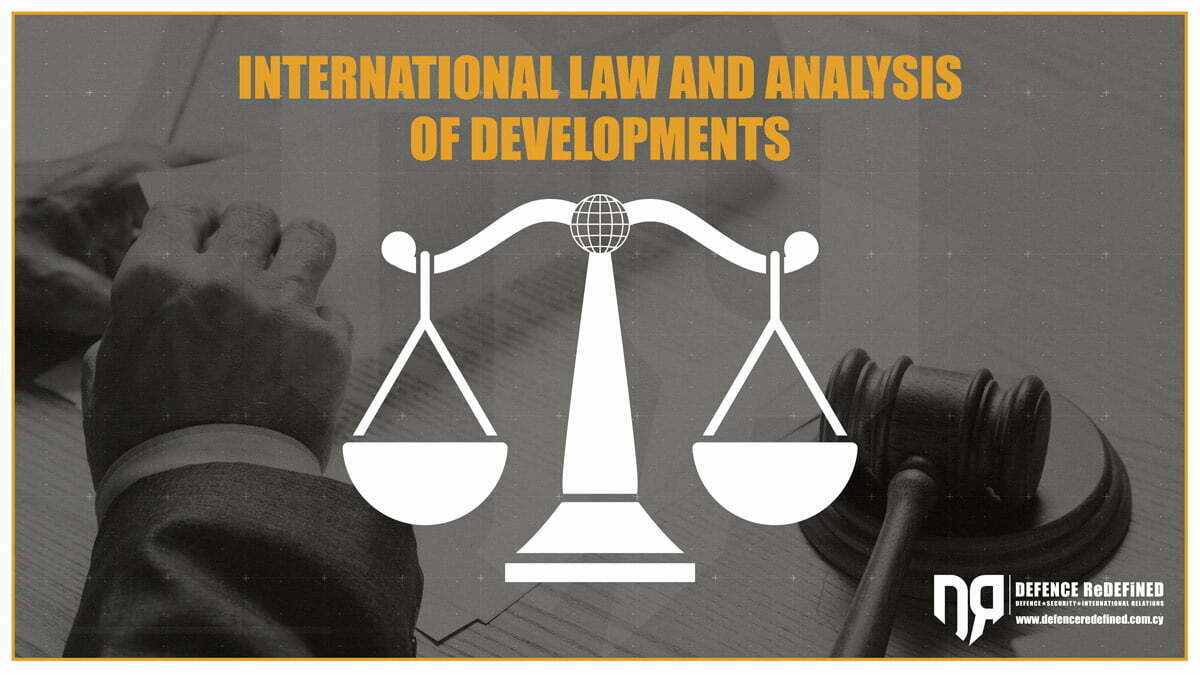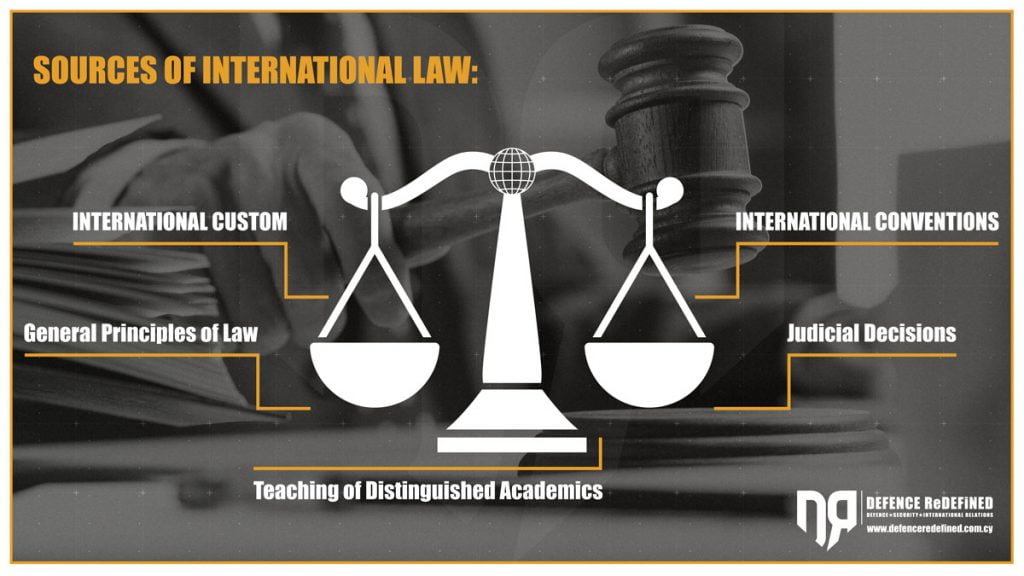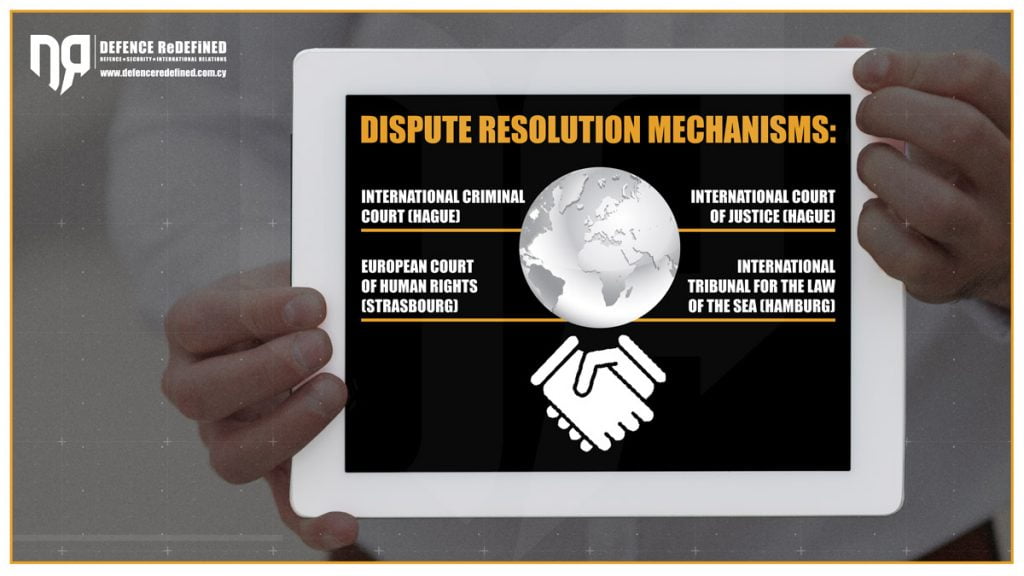OPINIONS
OPINIONS
*Nicholas Ioannides (PhD)

It is quite common in public discourse to use the term “international law”. However, usually those using it do not know what this branch of law actually is about. In short, international law is the set of rules governing the relations and conduct of certain entities, especially states, in the international legal sphere. Given that it is a branch of legal science, it is indispensable to have a legal background in order for a person to understand and interpret it.
Also read: International law cannot be à la carte for Turkey
In addition, as we shall see below, knowledge of general international law is essential in order to grasp how the relevant rules in each of its specialised areas apply. This article is a brief introduction to the topic of international law in order for the reader to be in a position to understand better future articles in which the terms explained below will be utilised.

Due to the lack of a supranational legislature, the rules of international law stem from specific sources listed in Article 38§1 of the Statute of the International Court of Justice (Hague). These sources are: international conventions, international custom, general principles of law, judicial decisions and the teaching of distinguished academics. Although there is no formal hierarchy, it is accepted that the main sources are international conventions and international custom. Furthermore, in international law there are additional acts from which rules derive, such as the UN Security Council resolutions, unilateral declarations by states etc.
It should be stated that the terms ‘participants’ or ‘users’ of international law are also used regarding the subjects of international law, that is, entities which acquire rights and for which obligations arise. For a long time, the state was the sole subject of international law. However, over time it has been accepted that international organisations, the individual, national liberation movements and non-governmental organisations can also have rights and obligations. In an increasingly interdependent international community, all of the above entities play an important role; this resulted in the limitation of the powers for an “almighty” state.

It is important for a legal order to have dispute resolution mechanisms. However, in order for an inter-state dispute to be brought before a dispute settlement organ it is necessary for states to have provided their consent beforehand. This condition derives from state sovereignty and sovereign equality of states, which implies that, in principle, no state can impose its will on another (par in parem non habet imperium).
The main international judicial organ is the International Court of Justice (Hague), which is the UN judicial organ. The Court of Justice adjudicates disputes only between states and delivers advisory opinions to the UN bodies. The judgments of the Court are binding only on the parties involved in each case (the concept of stare decisis does not apply here).
Also read: Kosovo | President Hashim Thaci is accused of war crimes | VIDEO
Moreover, the International Criminal Court adjudicates cases concerning only individuals and has jurisdiction in respect of the following international crimes: genocide, aggression, crimes against humanity, war crimes. In addition, the International Tribunal for the Law of the Sea deals with disputes concerning the interpretation and application of the 1982 UN Convention on the Law of the Sea. Regional courts such as the European Court of Human Rights and the Inter-American Court of Human Rights have been established for the protection of human rights. States also have the option to set up ad hoc arbitration tribunals and select arbitrators, if they do not wish to have recourse to standing international courts. Regional organisations such as the European Union have their own judicial bodies (Court of Justice of the European Union).
Finally, international law also includes more specific rules applicable to its specialised areas, such as the rules on the use of force (ius ad bellum), international humanitarian law (ius in bello), international criminal law, law of the sea (an article will be published soon), and human rights law. As mentioned earlier, a basic requirement for understanding, interpreting and applying the rules governing the aforementioned areas is good knowledge of the legal framework of general international law (sources, subjects, function of courts).
*Public International Law expert (University of Bristol)
Also read:
NEWSLETTER SUBSCRIPTION
A reluctant alliance? A different approach to French – Serbian defence relations
It has only been a few months since Croatia started receiving the first of the Rafale fighter jets it ordered from France.
The role of SERIOUS GAMES in the development of skills on Defense Standards
In an increasingly complex world, one vital factor for any successful organization is continuous capability building.
Strategy for Building Up Interoperable Defence Capabilities
Based on the current and emerging security threats and challenges in the geostrategic landscape, there is a…
USA | The leader of the Islamic State was killed in an airstrike in Syria
The US military announced midday Friday that it had killed ISIS leader Abu Yusuf in an airstrike in Deir ez-Zor province.
THEON INTERNATIONAL | German parliament approves the exercise of the 3rd option of the OCCAR Night Vision contract
Theon International Plc (THEON) announces that the Defence and Budget Committees of the German Parliament approved yesterday a new…
BATTLEFIELD ReDEFiNED 2024 | The premier Defence and Security Conference Successfully Concludes in Cyprus – Photos
The International Defence and Security Conference “BATTLEFIELD ReDEFiNED 2024” was successfully concluded on Friday, 13, December 2024…
Dark Eagle | Successful Test of Hypersonic Missile by the US Army
The US Army has successfully conducted a test launch of its new hypersonic missile system, “Dark Eagle,” after two years of delays.
GCAP | Industry Partners Reached a Landmark Agreement to Deliver Next-Gen Combat Aircraft
BAE Systems (UK), Leonardo (Italy), and Japan Aircraft Industrial Enhancement Co Ltd (JAIEC) have reached an agreement to form a new…
Completion of the French-Hellenic Defence Innovation Symposium
On 12 and 13 December, 2024, the Hellenic Centre of Defence Innovation (HCDI) organised the first French-Hellenic Defence Innovation…




















0 Comments